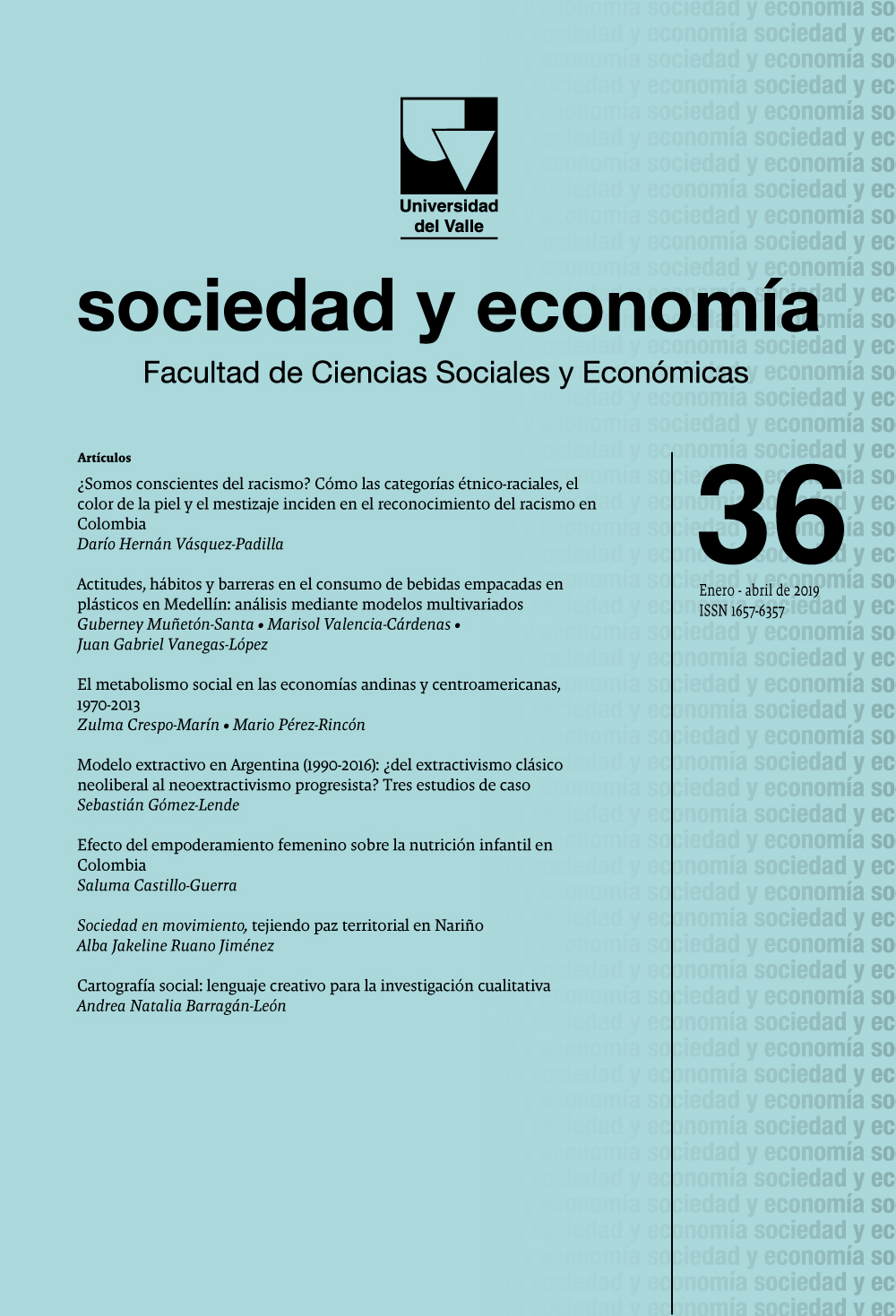Social cartography: creative language for qualitative research
Keywords:
social cartography, participatory cartography, cartographic language, qualitative methodologies,, situated knowledgeMain Article Content
This article aims to reflect on cartography as a heterogeneous and plural language, starting by defining the maps beyond simple scientific abstractions of reality, situating them as tools through which power is mani- fested. This cartographic language materializes an iconographic discourse that represents a specific territorial project of the subjects that they elaborate it, being cartography a social and eminently political product. To this end, the text is organized as follows: first, the historical map is analyzed as a model of a modern territorial state, then the proposal of participatory mapping is presented through some work experiences in Colombia, subsequently, social mapping is approached as a qualitative methodology of territorial character for social research, placing it as part of a knowledge matrix located in Latin America, and finally, some methodological recommendations are given for the realization of social cartography workshops.
Downloads
Revista sociedad y economía editada por la Facultad de Ciencias Sociales y Económicas de la Universidad del Valle se encuentra bajo una Licencia Internacional Creative Commons Atribución - No comercial 4.0
Basada en una obra en http://sociedadyeconomia.univalle.edu.co

